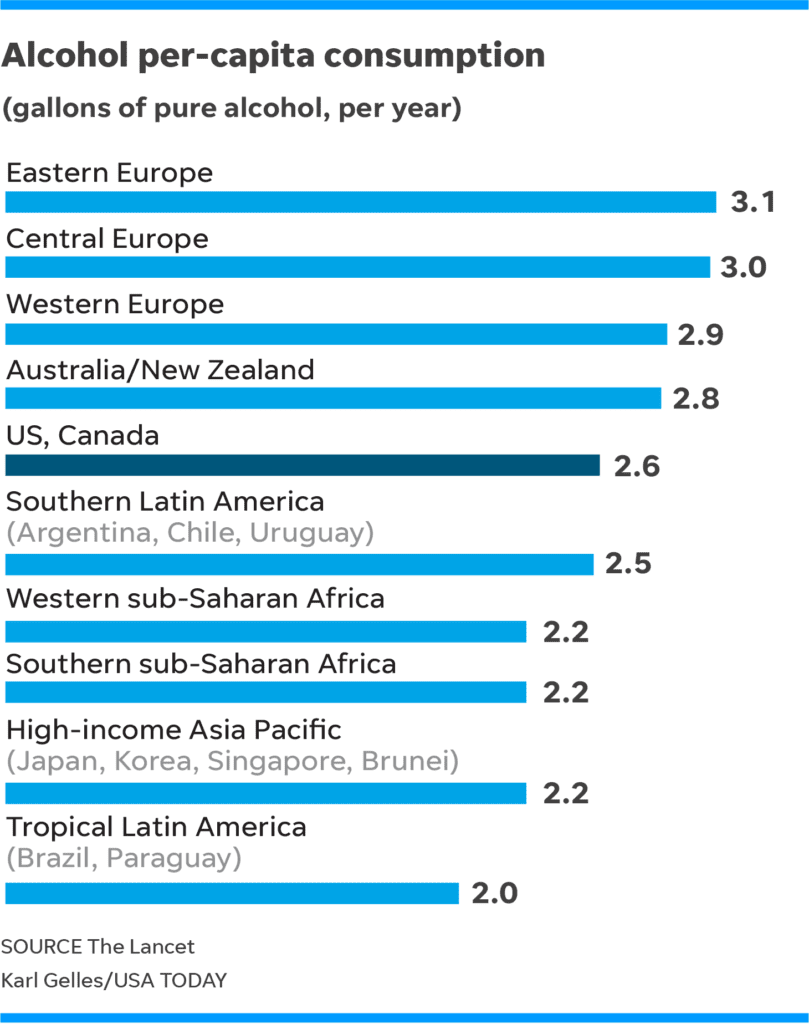Global Alcohol Use Rising, Policy Goals out of Reach
A new study published by The Lancet reveals, global alcohol use has increased over the past 3 decades. The study warns governments will fail to achieve the global policy goals to reduce alcohol use and recommends immediate action.
Highlights from the study:
- Globally, alcohol intake increased from 5.9 litres pure alcohol per adult per year in 1990, to 6.5 litres in 2017.
- The rise is likely due to increased alcohol use in low- and middle-income countries.
- Between 2010-2017, notable increases in alcohol use occurred in India and Vietnam.
- Significant decreases in alcohol use occurred Azerbaijan, Russia, the UK, and Peru.
- The world is not on track to achieve global targets to reduce alcohol use and related harms.
- Alcohol intake is predicted to increase further to 7.6 litres by 2030.
- By 2030, half of the world’s adults will consume alcohol.
- Almost a quarter (23%) will binge consume alcohol at least once a month by 2030.
This means, after the 10% rise in alcohol use between 1990 and 2017, global per capita alcohol consumption will rise another 17% over the next decade.
By 2030 half of all adults worldwide will consume alcohol. Further, almost a quarter will binge on alcohol at least once a month, according to projections covering 189 countries.
Globally, about 237 million men and 46 million women suffer from alcohol-related disorders. The highest reported rates are in Europe (15% and 3.5%, respectively, for men and women) and North America (11.5% and 5%).
Based on our data, the WHO’s aim of reducing the harmful use of alcohol by 10% by 2025 will not be reached globally,” said study author Jakob Manthey of the Technical University of Dresden, Germany, as per USA Today.
Instead, alcohol use will remain one of the leading risk factors for the burden of disease for the foreseeable future, and its impact will probably increase relative to other risk factors.”
Time for action against global alcohol harm
The authors of the study call for effective policy measures to prevent and reduce the alcohol harm. Recommendations for effective alcohol control are available at all levels, especially the WHO best buy alcohol policy solutions including increasing taxation, restricting availability, and banning alcohol promotions, sponsorships and advertising.
In reaction to these new findings, IOGT International has called for urgent action to make alcohol policy the priority it should be, commensurate with the burden alcohol harm places on people, families, communities and societies around the world.
—
For further reading:
Alcohol Use Projected To Keep Rising, Countries Fall Short Of Promise To Protect People
